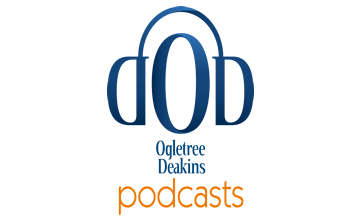Podcast: Play in new window | Download (Duration: 17:38 — 24.3MB) | Embed
Subscribe: Apple Podcasts | Spotify | TuneIn | More
In this podcast, Harris Freier (shareholder, Morristown) and Lauren Watson (associate, Raleigh) discuss the growing issue of misdirected wire transfers tied to data breaches. Lauren and Harris begin by addressing social engineering and phishing, and how these types of business email compromise scams by cybercriminals occur. The speakers also review the importance of having an incident response plan, the legal obligations for breach notifications, and strategies for recovering misdirected funds, emphasizing the need for swift action and thorough verification processes to prevent future incidents.
